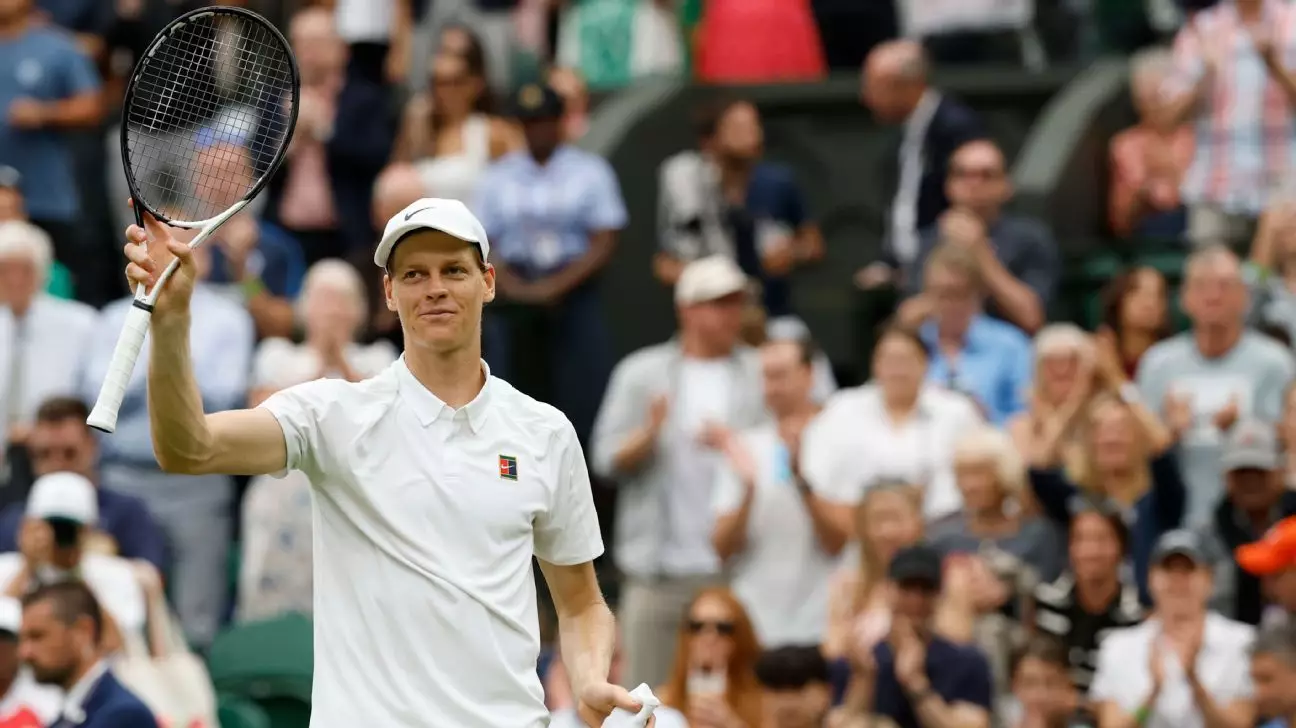Jannik Sinner’s recent dominance at Wimbledon has not only demonstrated his exceptional talent but also underscored a profound shift in his mental resilience and strategic mastery. Unlike many young players who falter under pressure, Sinner exudes an almost unshakeable confidence. His game, characterized by relentless consistency and precision, reveals a maturity that belies his years. Sinner’s ability to maintain focus, even when faced with adversities like player injuries or challenging match scenarios, positions him as a potential heir to the sport’s greats. His performance isn’t merely about physical prowess; it is an embodiment of meticulous preparation and mental strength, qualities that separate the good from the truly elite.
Overcoming Obstacles and Exploiting Weaknesses
Despite being a top seed, Sinner did not encounter smooth sailing in his matches, yet his responses demonstrate a strategic mindset that few of his competitors can match. The victory over Pedro Martinez, who was visibly hampered by a shoulder injury, appeared straightforward on paper, but it was Sinner’s calm and tactical approach that guaranteed victory. His opponent’s compromised serve offered him an easier pathway to assert dominance, but Sinner’s unwavering composure ensured he capitalized on every opportunity. What stands out is his ability to stay emotionally detached from the chaos around him—a trait essential in mastering major tournaments. His clean sheet in service breaks and the minimal number of games lost highlight a consistency that is rare at this stage of a Grand Slam.
Commentary on Performance and Future Trajectories
What makes Sinner’s current form truly remarkable is not just the scorelines but the manner in which he’s achieved them. He’s conceded only 17 games so far in Wimbledon, a feat that echoes historic performances by legends like Jan Kodes, emphasizing his dominant control on the court. Moving forward, Sinner’s match against Grigor Dimitrov promises a fascinating encounter between experience and youthful zeal. Dimitrov’s milestone of 100 major match wins signifies his resilience and adaptability—qualities Sinner needs to match and surpass. Nonetheless, Sinner’s record of previous fourth-round appearances, now extending beyond Nicola Pietrangeli’s Italian record, illustrates a player who is no longer merely an up-and-comer but a seasoned contender with undeniable credentials.
The Broader Impact on Italian Tennis and Modern Men’s Game
Sinner’s performances are part of a larger narrative that is revitalizing Italian tennis. His presence in the fourth round, alongside compatriots such as Flavio Cobolli and Lorenzo Sonego, marks a historic milestone—the first time three Italian men are in the Wimbledon round of 16 since the onset of the Open era. This renaissance signifies a shift towards a more competitive and diverse men’s field, challenging traditional powerhouses. Sinner’s ascent raises an important question: what role does mental toughness play in this new era? His mental fortitude, combined with his technical skill, suggests that he is not just a future star but a current dominant force capable of reshaping the traditional hierarchy.
The narratives surrounding Sinner’s Wimbledon run exemplify a broader trend in professional tennis—one where mental resilience, tactical intelligence, and unwavering confidence are as crucial as raw physical ability. As he continues to progress through this tournament, he not only challenges opponents physically but also psychologically, setting the stage for a potential Grand Slam breakthrough. The sport is watching closely because Sinner’s rise signals a new chapter—one defined by a blend of youthful energy and seasoned composure that promises a more competitive, dynamic future. For tennis enthusiasts, his journey offers hope that the next generation is ready to take the sport to new heights—confident, relentless, and unshakeable.


Leave a Reply